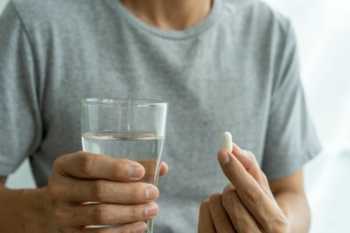Summary
-
What is L-arginine?
L-arginine (or arginine) is an amino acid that is necessary for the body's production of nitric oxide, a compound that relaxes blood vessels and allows more blood to flow through arteries. The form in supplements is typically "free form" arginine, but is sometimes a compound, such as L-arginine HCl. (See What It Is). Not all labels clearly list the amount of arginine. (See What to Consider When Buying), but you can use the Results table to easily compare amounts of arginine in tested supplements.
-
What are the health benefits of L-arginine?
L-arginine may modestly improve symptoms of congestive heart failure, exercise intolerance people with angina, and leg pain due to intermittent claudication, as well as exercise endurance in recreational and older athletes. However, it does not appear to improve blood flow to muscle or athletic performance in athletically active young adults. Some, but not all, studies have shown some modest benefits in sexual dysfunction and Raynaud's syndrome. L-arginine can provide nutritional support and stimulate the immune system in some people with cancer. It may also improve chemotherapy response rate and slow the growth of certain breast and colon tumors, but be aware it may actually promote the growth of others (See What It Does).
-
How much L-arginine should I take?
Dosage depends on the condition being treated, but is typically several thousand milligrams per day (See Dosage).
-
Best L-arginine products?
Among the products that passed our laboratory tests (See What CL Found), we selected Top Picks for arginine for general use, cardiovascular, sexual enhancement, and sport.
-
L-arginine safety and side effects:
L-arginine supplementation appears to be generally safe and well tolerated in healthy individuals, although stomach upset may occur, and capsules have been reported to irritate the esophagus — so be sure to take with water. L-arginine may interact with blood-pressure lowering and diabetes medications. Do not use if you have had a heart attack, and do not use to treat serious conditions including congestive heart failure, angina, or intermittent claudication without physician supervision. For details, see Concerns and Cautions.
Products Tested in 2017 and 2018
+— 36 sources
In addition the results of its expert testing, ConsumerLab uses only high-quality, evidence based, information sources. These sources include peer-reviewed studies and information from agencies such as the FDA and USDA, and the National Academy of Medicine. On evolving topics, studies from pre-print journals may be sourced. All of our content is reviewed by medical doctors and doctoral-level experts in pharmacology, toxicology, and chemistry. We continually update and medically review our information to keep our content trustworthy, accurate, and reliable. The following sources are referenced in this article:
- Hambrecht, J Am Coll Cardiol 2000
- Bednarz Int J Cardiol 2000
- Maxwell,J Am Coll Cardiol 2002
- Wilson, Circulation 2007
- Dong, Am Heart J 2011
- Rembold, Mol Cell Biochem 2003
- Agostoni, Int J Clin Lab Res 1991
- Khan, Arthritis Rheum 1997
- Chen, BJU Int 1999
- El Taieb, J Sex Med 2019
- Torkaman, BMC Psychiatry 2024
- Ito, J Sex Marital Ther 2001
- Langer, Cochrane Database Syst Rev 2014
- Heys, Int J Oncol 1998
- Brittenden, Surgery 1994
- Ma, Clin Cancer Res 2007
- Phillips, Cancer Res Treat 2013
- Chen, J Int Sports Nutri, 2010
- Bailey, J Appl Physiol 2010
- Andrade, Appl Physiol Nutr Metab 2018
- Burkle, JISSN 2022
- Gills, Nutrients 2021
- Mone, Front Cardiovasc Med 2022
- Morris, Haematologica 2013
- Morris, Am J Hematol 2025
- McCarty, Open Heart 2015
- Ludy, Chem Senses 2012
- Evans, J Nutr Biochem 2004
- O'Donnell, ACG Case Rep J, 2019
- Tanaka, Pediatr Int 2022
- Kitay, Cell Physiol Biochem 2017
- Schulman, JAMA 2006
- Cialis Prescribing Information, Revised 11/2011
- Xu, Andrologia 2021
- Binet, Clin J Gastoenterol 2018
- Griffith, Chemotherapy 1981
As a ConsumerLab.com member, you may print a copy of this report for your personal use.
You can access a special print version by clicking the "Print" icon in the upper right corner of this report.
You can then use your web browser's print functions to print the whole report or just selected pages.
You may also email or post a link to this report using the web address above.
Non-members using the link will see a free summary and can join to view the full report.
Other means of copying or distributing this report, in part or full, are not permitted.
If you are sight-impaired and your computer is having trouble converting the text in this report to speech,
contact us for assistance at Membership@ConsumerLab.com or by
phone at 914-722-9149.





























